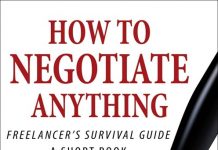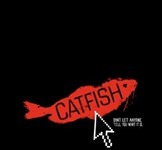 This article in The Guardian has ignited a firestorm in the e-book blogosphere. I’ve seen it covered on at least four other sites (we mentioned it in one of the daily news roundups), and while the initial article focused on a review-rigging scandal involving a company that charged authors money in exchange for a set number of reviews, I’ve seen a few responses (such as this one, at The Digital Reader) broaden the discussion into the larger issue of the function of customer reviews in general.
This article in The Guardian has ignited a firestorm in the e-book blogosphere. I’ve seen it covered on at least four other sites (we mentioned it in one of the daily news roundups), and while the initial article focused on a review-rigging scandal involving a company that charged authors money in exchange for a set number of reviews, I’ve seen a few responses (such as this one, at The Digital Reader) broaden the discussion into the larger issue of the function of customer reviews in general.
This is a tough question to answer, because it depends on what you think the purpose of these reader reviews is. An old-school ‘professional’ review in a newspaper or magazine was more about placing the work into its proper category in the canon and offering some deeper perspective on it. This new format of ‘customer review’ started out as more of a straight opinion thing: Did I, the general customer, like the book or not? Whether I, the customer-reviewer, had any sort of cultural or historical perspective on the book was irrelevant.
Then over time, a faction arose who began to see the review as a promotional tool for authors themselves to use to gain attention, press and marketing share. People would get friends and family members to write reviews of their books to gain sales, to ‘game’ Amazon’s ranking system and so forth. It was not about the potential customer at all, it was about the author.
And then a third faction arose who saw the review as a means of communication: If they had a problem with the author or the publisher (for instance, if the book was priced too high for their taste, or was geographically restricted) they would write the review—even if they hadn’t read or purchased the book—as a means of protest, to communicate their displeasure to those in charge.
* * *
So, has the disintermediation of the book review been a good thing, or not? Personally, I think it has been. I think the benefits to readers having so much more information outweigh the drawbacks of ‘author gaming.’ I think the average customer is smart enough to read a planted or bogus review and see through it—and if they don’t, they’re probably browsing so lightly that they weren’t a sure buy anyway. I also think that good reviewers—be they former professionals or just regular customers like you and me—will get what they deserve. If they write quality reviews, people will take them seriously no matter who they are. And if they write unhelpful ones, people won’t trust their word. I myself am grateful to those who have written reviews which helped me purchase—or not purchase—a book.
There are parallels here to another community I frequent:
I purchase and enjoy exercise DVDs, and the community I belong to has an active review-posting section. Just like book readers, exercise DVD fans have their little niches and preferences. In DVDs, it might be that they care about the music, or the outfits, or how the steps are cued. If I’m also a music person or an outfit person, and a reviewer comments on these things, it can save me from buying a workout I may hate. Personally, I don’t care at all about the outfits, so if a workout I am otherwise interested in gets a poor comment because of that, I know to disregard that critique. But I also appreciate that it’s there for those who do care about that. It doesn’t influence my decision, but it may very well influence someone else’s.
Similarly with books, it may be ‘I care about the cover art,’ or ‘I care about the typos.’ I know people who read who don’t care about typos. They’ll read straight past them and say, “Well, I get what they meant, so it didn’t bother me.” Personally, typos drive me crazy. I can’t stand them. If there are only one or two, I can get past it (and I’ll mark them for correction so that if I re-read the book, they won’t bother me again). But if there are more than a handful, it can be a deal-breaker for me. I appreciate that Amazon’s review system allows so many people to post comments because the more comments there are, the more likely it is that the book has already been checked by another typo-hater who can warn me off, or alert me to a book I can read with safety.
Over time, I also have found that the more reviews I read, the more I come to recognize certain frequent reviewers who share my preferences. There was one in my video group named Debbie who liked all the stuff I liked, hated all the stuff I hated, and had a lot more money than I did to try new stuff. It was so useful! It got to the point where I could email her about some hot new thing I was eyeing and outright ask her to tell me whether to buy or skip. I think that as sites like Goodread and Library Thing evolve to provide readers with a way of filtering the millions of Amazon reviews, we’ll start to see this sort of thing happen with books, too. Goodreads allows people to ‘follow’ your reviews; if they choose to, it’s probably because you share their tastes. So you can reciprocate and follow their reviews, and learn about new books that way.
As for the authors, I want to tell them that if a customer is truly in your target audience—if they came to your product page because they were interested in buying your book—they’ll read at least a few of the reviews to see the overall trend. The ‘gamers’ who shill without offering any information will stand out. I know I always looked for keywords when I shopped for exercise DVDs: simple to follow; well-cued; similar to Leslie S workouts; and so on. And I was looking for the deal-breaker keywords, too: complex choreography; fast-paced; uses numerous equipment; and so forth. If the review did not address these things that mattered to me, I scrolled past it and disregarded it.
Well, book readers have their keywords, too. So the gamers who just post a generic ‘liked it’ with a starred review will be ignored by those who truly look to reviews to guide their purchases. And those readers—those careful and serious readers—are the ones who will buy not just that book, but the others you might offer as well. So do you want the one-off sale by the impulse buyer who’s buying it just because it was 500 five-star ratings? Or would you rather snag the guy who skims for his keywords, decides that you are the author for him, and shells out for the whole of your back catalogue?
Skip the gaming. Build your audience. You’ll be okay.
































People care about the outfits? Wow.